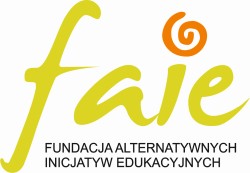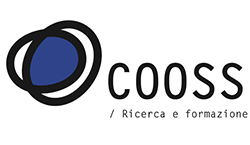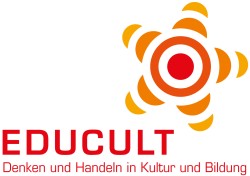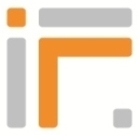
Database of Links to the European Programmes (26)
Database of Links to the European Programmes
Here you can find links to the webpages of the European programmes co-financing international, partnership cooperation. Next to the link you will short, structured characteristic of the programme.
* Please note that most of the information here is still related to the structure of the European grant programmes of the EU financial perspective for the years 2014-2020. The database will be continuously supplemented with information about the new/renewed EU grant programmes within the new financial perspective 2021-2027, in accordance with the announcements of the European Commission.
The Alpine Space programme is a European transnational cooperation programme for the Alpine region. It provides a framework to facilitate the cooperation between economic, social and environmental key players in seven Alpine countries, as well as between various institutional levels such as: academia, administration, business and innovation sector, and policy making.
Four of these thematic fields, called priorities, have been identified for the 2014–2020 period:
Priority 1: Innovative Alpine Space
Priority 2: Low Carbon Alpine Space
Priority 3: Liveable Alpine Space
Priority 4: Well-Governed Alpine Space
The cooperation area of the Alpine Space programme covers the Alps and their surrounding lowlands, connecting very distinct regions, such as the French Rhone Valley with the Slovenian Adriatic coast, and the metropolitan area of Milan with the Bavarian foothills.
The programming process for the Alpine Space programme 2021-2027 has officially started.
This programme contributes to the development of a European area of justice based on mutual recognition and mutual trust.
This programme supports the development of projects for a Europe where equality and the rights of persons are promoted and protected.
Creative Europe Programme (2014-2020) supports the culture and audiovisual sector.
In the frame of the CULTURE sub-programme it supported cooperation projects of cultural and creative organisations within the EU and beyond, such as those promoting cross-border cooperation, platforms, networking, and literary translations.
There is the last call in January 2020 in the frame of Literary translations projects.
The program will be continued in the new financial perspective of the EU.
For more information see:
The European Commission - Creative Europe webpage: https://ec.europa.eu/programmes/creative-europe/node_en
The EACEA (Education, Audiovisual and Culture Executive Agency - operator of the Creative Europe Programme) webpage: https://eacea.ec.europa.eu/creative-europe_en
Nordic Council of Ministers' support to Nordic Russia cooperation
Written by DanishThe Nordic Council of Ministers' Open Call Program for Co-operation with Northwest Russia includes funding for cooperation and networking projects between Nordic and Northwest Russian NGOs.
All parties in the Nordics and Northwest Russia are eligible for funding.
As a rule, the applicant / lead partner for the project must be from one of the Nordic countries. The partnerships must include at least one partner form Northwest Russia and partners from at least two Nordic countries.
- The Nordic countries are: Denmark, Finland, Iceland, Norway, Sweden and the three self-governing areas: the Faroe Islands, Greenland and Åland.
- The Northwest Russia includes the following regions: St Petersburg City, Archangelsk Oblast, Kaliningrad Oblast, Leningrad Oblast, Murmansk Oblast, Pskov Oblast, and Republic of Karelia.
The project activities should focus on establishment of networks and exchange of experiences. All thematic areas are eligible and special allocations are made available for strengthening democracy, human rights, civil society and NGO cooperation.
The yearly grant per application cannot exceed 500,000 DKK (67,000 euros).
For more information, see: https://www.norden.org/da/node/34030
Nordic Council of Ministers' programme for NGO cooperation in the Baltic Sea region
Written by DanishThe Nordic Council of Ministers' program for NGO cooperation in the Baltic Sea Region supports NGO's from Russia, Belarus, Poland, Denmark, Norway, Sweden, Finland, Iceland, Estonia, Latvia, Lithuania, Greenland, Faroe Islands and Åland Islands.
It is a formal requirement that the applicant and relevant partners are Non-Governmental Organizations (NGOs). The program defines NGOs as "non-profit, publicly anchored, civic organizations that are neither owned nor controlled by public authorities, nor by private companies, and which have an open and democratic structure".
Projects under the auspices of the NGO program must have - including the applicant - at least
- one partner in the Nordic Region,
- one partner from Estonia, Latvia, Lithuania, or Poland, and
- one partner from Northwest Russia, or Belarus.
The yearly grant cannot exceed 500,000 DKK (67,000 euros).
For more information, see: https://www.norden.org/en/funding-opportunities/nordic-council-ministers-funding-programme-ngos-baltic-sea-region
The Culture and Art Program of Nordic Culture Point supports Nordic cooperation within all areas of art and culture, in all project phases: preliminary work, production, presentation and dissemination.
Each project should include parties from at least three countries, of which at least two should be Nordic (Denmark, Finland, Iceland, Norway and Sweden and / or the Faroe Islands, Greenland and the Åland Islands). It means organizations from countries outside the Nordic region also can be partners. Furthermore, the applicant organization are not required to be resident or active in the Nordic countries nor be Nordic nationals, provided the Nordic dimensions of the project are otherwise satisfied.
The Program is open for both professional and amateur sectors, and the voluntary sector.
Projects can be granted:
- up to 7,000 EUR with full financing
- up to 40,000 EUR with at least 30% co-financing
- up to 100,000 EUR with at least 50% co-financing
For more information, see: https://www.nordiskkulturkontakt.org/en/grants/about-the-grant-programmes/culture-and-art-programme/
Nordplus is the largest educational support programmefor mobility and co0llaboration projects within the Nordic Council of Ministers and it is funded by the Nordic and Baltic countries.
Only applicants from the Nordic countries - Denmark, Norway, Sweden, Finland, Iceland, the Baltic countries - Estonia, Latvia, Lithuania - and the autonomous regions of Åland, the Faroe Islands and Greenland, which act as independent countries in Nordplus, are eligible for grants.
Nordplus Adult provides an average of 50,000 euros for a two-year Nordplus Adult collaboration project involving three or four partners.
For more information, see: https://www.nordplusonline.org/
The European Social Fund (ESF) is the European Union's main financial instrument for social policy and investment in people.
The ESF supports measures
- to prevent and combat unemployment
- to expand the range of training on offer
- and for an improved functioning of the labour market.
With the aim of promoting and employing, ESF invests in education, skills and lifelong learning. The priorities are gender equality, active ageing and inclusion, adaptation to change, technical assistance and reducing early school leaving. The ESF is one of the European Union's Structural and Investment Funds (ESIF) alongside the European Regional Development Fund (ERDF), the European Agricultural Fund for Rural Development (EAFRD), the European Maritime and Fisheries Fund (EMFF) and the Cohesion Fund.
INTERREG is the EU programme for cross-border cooperation, which supports collaborations between european countries. This includes three types of cooperation:
cross-border (INTERREG A)
transnational (INTERREG B)
interregional (INTERREG C).
More...
Erasmus Plus is the European Union program for Education, Training, Youth and Sport 2014-2020, with a specific area devoted to adult education.
Here the link to general programme ERASMUS+
Specific info related to Adult Education are dierctly managed by your National Agency. Find yours E+ National Agencies
The aim of the Europe for Citizens Programme is to contribute to citizens' understanding of the EU, its history and diversity and to encourage the democratic participation of citizens at EU level. The Programme is implemented through two strands:
Strand 1: European remembrance: Raise awareness of remembrance, common history and values and the Union's aim.
Strand 2: Democratic engagement and civic participation: Encourage democratic and civic participation of citizens at Union level.
Measures in this strand are:
-Town Twinning;
-Networks of Towns;
-Civil Society Projects
More information:
https://eacea.ec.europa.eu/europe-for-citizens_en











